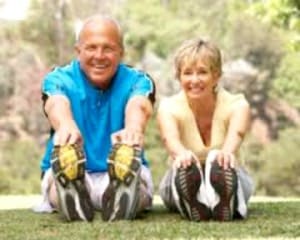
As people age, small white spots called white matter hyperintensities (WMH) begin to appear in the brain. These WMH, visible with magnetic resonance imaging (MRI), have been linked to increased movement problems with motor skills like walking. For the study, the researchers used data from 167 adults aged 60 to 96 years who were participating in an ongoing study of aging. The researchers used MRI scanning to measure the participants’ WMH. The participants wore activity monitors for 11 days, completed motor performance tests, and reported on their own levels of physical activity.
More WMH were linked to poorer motor function, but not for everyone. The participants who were the most active tended to have better motor functions, but total daily activity was not correlated to the number of WMH. The participants in the 90th percentile of daily activity—equivalent to walking an extra 1.5 hours per day compared to the other participants—demonstrated no link between the number of WMH and motor function. However, participants in the 50th percentile did demonstrate a connection between WMH and motor skills. This connection was stronger for people who exercised the least. The findings account for factors like weight, depressive symptoms, and vascular disease.
“What was notable was that WMHs had no effect on motor function for the persons at the highest percentile of physical activity, whereas they did affect motor function for those at the 50th percentile and the effect was even stronger for the persons at the 10th percentile of activity,” stated lead study author Debra A. Fleischman of Rush University Medical Center in Chicago.
The findings may explain why more active older adults have better motor function. The study also suggests that regular activity is important for maintaining motor skills into old age.
This research is published in the journal Neurology.
Previous news in exercise:



 © 2025 Unyte Health US Inc.
© 2025 Unyte Health US Inc.